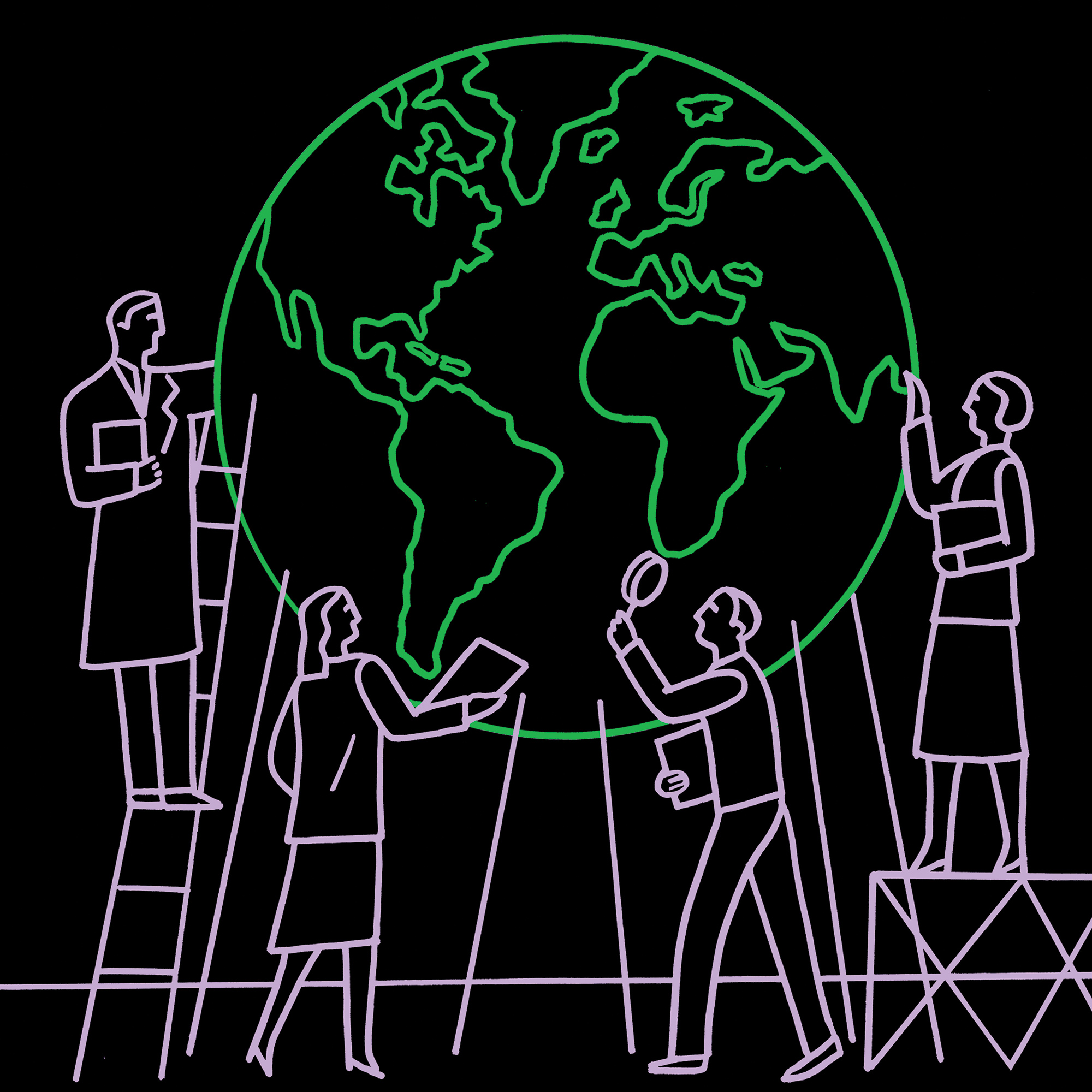
Global realities Global realities Global realities
In a world full of challenges, universities must lead the way to solutions.
By Leela Fernandes | Illustration by Anthony Russo | June 2022 issue
As we emerge from a global pandemic that profoundly unsettled University life, we now turn to face multiple, often intersecting, global challenges. The pandemic illuminated and exacerbated underlying inequalities not only in our own country, but within nations and between the Global North and Global South. More than ever, universities must rise to the challenge of catalyzing positive change.
The disparate access to health care—more than half the world’s population lacks access, according to the World Health Organization—and significant disparities in access to vaccines are among the many ways socioeconomic inequalities shaped by class, race, gender, caste and social geography have worsened the effects of the pandemic. These inequalities are woven into a series of overlapping global challenges that include the effects of climate change and a range of geopolitical crises in places such as Yemen, South Sudan and Ukraine.
As our students and scholars navigate a world shaped by these and other challenges, we are compelled to think more about inequality. Global challenges like COVID-19 do not stop at the borders of nation-states. And we are witnessing the complexities of globalization through financial markets and supply chains, and the global impact of geopolitical unrest through refugee crises and migration.
Universities must be agents of change through global engagement and international education. New generations of students, regardless of their intellectual fields of interest or the professions they seek, will become global citizens and can influence the decisions of businesses, organizations and governments. Our faculty and scholars already bring to the fore their expertise in areas like identity and culture, migration, markets, development, human rights, Indigenous politics, food security, foreign policy and international security. They advise governments, inform global conversations and advocate for human rights. Universities can have a real impact by building on this expertise and engaging the general public.
While the challenges we face are global in scale, solutions to climate change, political conflict and deep-seated inequalities require an in-depth understanding of particular places and their cultures, histories and political and economic contexts. In our fast-paced world, universities have the resources, the institutional capacity, and responsibility to drive such understanding.
We need travel and the immersive and in-depth study of particular communities, countries and regions. This provides distinctive understandings of how the world works. Universities have a social responsibility to support such forms of student engagement and learning.
Finally, the global challenges we face also present universities with an ethical responsibility. We need a kind of global engagement that is founded on intellectual humility. That means we are open to learning from communities and comparative contexts rather than assuming we can develop global solutions from the specificities of our own interests and experiences. In this endeavor, “diversity, equity and inclusion” must be more than a formulaic institutional policy. Rather, universities must revise their own institutional structures and intellectual approaches to facilitate reciprocal forms of engagement and learning, breaking from histories of colonialism and racial inequality. In the process, the challenge for universities is to grapple with local change within their own institutional and educational structures even as they seek progress on a global scale.